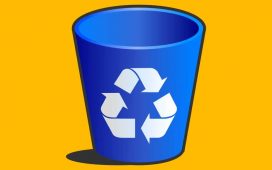The next two years are going to be tough on a tech industry that is seeing demand ginned up by the COVID-19 pandemic leveling off and an increasingly volatile global economy, according to Microsoft Chairman and CEO Satya Nadella.
In an interview this week with CNBC this week, Nadella said the long-term growth prospects for tech companies are strong with emerging technologies like artificial intelligence, but that upswing will come after some pain.
“The next two years are probably going to be the most challenging because, after all, we did have a lot of acceleration during the pandemic and there’s some amount of normalization of that demand and, on top of it, there is a real recession in large parts of the world,” he said.
“The combination of pull-forward and recession means we will have to adjust and will cycle through the demand cycle and, in fact, come out of it with what can be another massive growth cycle for the tech industry.”
Companies are already reducing costs to deal with the slowing demand and economic pressures, which includes laying off workers. Microsoft in October announced it was slashing jobs,and is not alone with the 18,000 jobs Amazon is cutting and the 11,000 being slashed by Meta.
Salesforce said this week that about 10 percent of its workforce – about 7,000 people – will lose their jobs and Micron is slashing about 4,800 jobs.
In all, Layoffs.fyi says that more than 1,000 tech companies in 2022 announced almost 154,000 jobs cuts, with 18 companies laying off more than 17,000 workers so far this year.
Microsoft, like many other companies in a world where economies are in recession or threatened with it, is getting its expenses in line with the new revenue trends, Nadella said, adding that he wants to manage costs in the short term while investing for the long term.
“Overall, whether it’s for us as Microsoft or for the tech sector, it’s going to be very, very important to look inside and say, ‘Are we as efficient as we need to be competitive?'” the CEO said.
“At the end of the day, just because we are a technology company doesn’t mean we are the most efficient at what we do. As the paradigm has changed, as the bar has risen, we have to measure ourself with the new bar. … We’re not immune to the global changes.”
That said, he cautioned against pessimism about the tech industry’s direction, noting that technology jobs don’t live only in the tech industry. With technology touching all parts of business, the cliché is that every company is a tech company. That means most organizations in other industries employ tech workers.
“Overall, tech jobs [have] actually increased,” he said. “Tech jobs now are coming in financial services, in energy companies, in retail, manufacturing, and that’s healthy because in the long run, all those employees in all those industries are going to consume more tech infrastructure.”
Given that, “when we think about our cloud business long term, we’re bullish because of the fact that there’s more employment outside of the tech industry of technical talent. That’s what we’re banking on.”
Also, regardless of the economic situation, software and digital infrastructure will continue to be critical to businesses in most industries, which means demand, while softening, will not go away, he said.
Another reason for long-term optimism: AI, which Nadella said will fuel the next era of computing.
“If you say mobile and cloud was the last paradigm, the next really is going to be AI,” he said. “That’s going to happen, I would say, in the next two, three years. … I take it back to 2007, 2008, [which] was when cloud and mobile became big. I think we’re in that phase when it comes to AI.”
He pointed to ChatGPT, the machine learning-based text interface for large language model (LLM) unveiled in November by OpenAI that can respond to questions in a conversational manner. The technology holds promise for a wide range of use cases – Microsoft reportedly is integrating it into its Bing search engine – thought it also is being embraced by cybercriminals.
Microsoft in 2019 invested $1 billion in OpenAI – reportedly it is negotiating with the startup for another investment – and is using OpenAI’s technologies in Azure.
He highlighted the Copilot programming service in GitHub that became generally available in 2022 and which enables developers to use AI to help write code. Nadella said it has been a boon to developers, thought it has drawn criticism for possibly violating copyright and software licensing laws. Lawyer and developer Matthew Butterick in November is suing Microsoft, GitHub, and OpenAI based on those concerns.
That said, developers are embracing AI in their work, he said. Forty to 50 percent of code is being created is generated by AI, which means developers are being more productive.
“To me, knowledge work, information work, frontline work, software development, all can be transformed by AI,” the CEO said. ®












